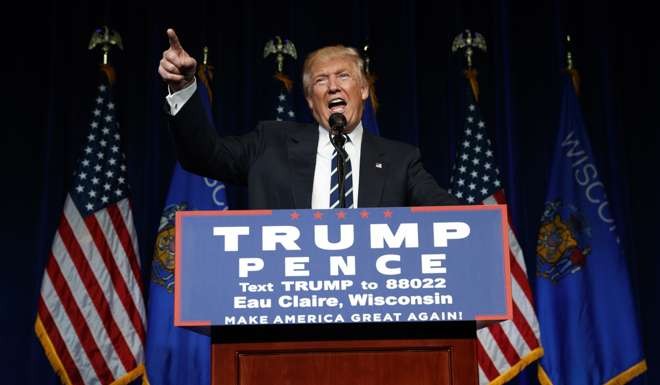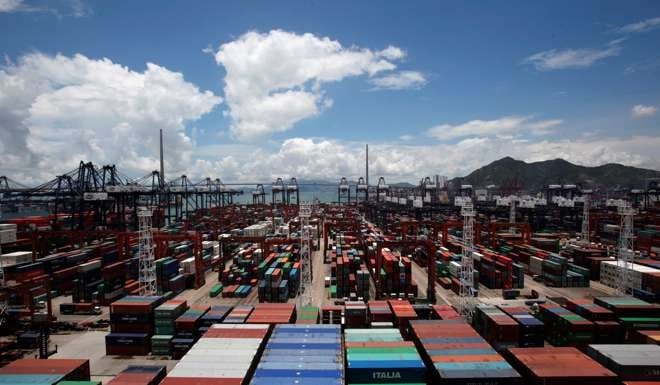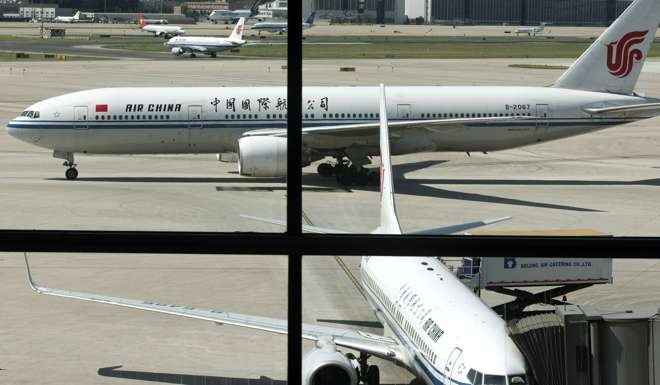
Here’s how to derisk your investment portfolio in the event of a Trump presidency
Trade protectionism, deregulation, and support for the oil and gas industry are some of the likely changes that will have a bearing on stocks in Asia, analysts say

China’s consumer, shipping, ports, airlines and information technology sectors could take a hit if Donald Trump wins the White House, while coal miners, cement and steel makers might benefit, analysts said.
As the US presidential election comes down to the wire, the odds have improved for Republican nominee Donald Trump, who, according to recent polls, is gaining ground on Democratic rival Hillary Clinton.
“A Trump presidency will raise the uncertainty about the future path of policymaking and open the door to protectionism,” said David Rees, an economist for Capital Economics.
Clinton has been grappling with declining support after the Federal Bureau of Investigation (FBI) on Friday reopened a probe into her use of a private email server. A nationwide poll by ABC News/The Washington Post on Tuesday indicated that Trump has a lead over Clinton for the first time since May, drawing 45 to 46 per cent support among likely voters.

Trump has said if elected on November 8 he would support a 45 per cent tariff on imports of Chinese goods to the US and also label China a currency manipulator, although his official website doesn’t mention specific tariff numbers.
Chen Yalong, an analyst for China’s Northeast Securities, recently advised Chinese investors to hedge against potential “Trump risks” in the A-share markets.
“Trade relations and military cooperation between China and the US may face more uncertainties if he is elected. Possible jitters on Wall Street on the election day will also spread to A-share markets,” Chen said.
JP Morgan analyst Adrian Mowat listed some Chinese stocks that could be hit by higher tariffs.
“China is likely to respond to punitive unilateral US trade sanctions. Potentially this could generate into a broader trade war,” Mowat said in a recent research report. “Businesses may face multiple disruptions to their supply chains.”

Consumer, shipping, ports, airlines and IT sectors could be negatively affected, he said.
Mainland-listed companies including appliance maker Qingdao Haier, domestic rival Midea Group, and Gree Electric Appliances were cited as examples of companies vulnerable during a trade war.
Among Hong Kong-listed companies, Li & Fung, a clothing and toy supplier to US retailers like Wal-Mart, container shipping companies such as China Cosco and Orient Overseas Container Line, and dry bulk shipper Pacific Basin Shipping (Hong Kong) could also be hurt.

Among other companies, JP Morgan highlighted ports operator Hutchison Port Holdings, China Merchants Holdings (International), carriers Air China, China East Airlines, China Southern Airlines, car parts maker Fuyao Group Glass Industry, Minth Group, apparel exporter Shenzhou International Group, and acoustic component maker AAC Technologies, which is a supplier for Apple.
Mowat said these companies are at risk because they derive a significant part of revenues from their exports or sales to the US, or benefit from the cargo business between China and the US.
“Potential tariffs apply to ‘Made in China’ products rather than China brands. If that is the case, it will apply to most IT products including Apple,” Mowat added. “The final assembly of many electronics products is done in China, often by subcontractors. By value of exports to the US, the product ranking is smartphone, PCs and TVs.”
He added that some Taiwanese and South Korean supply chain companies with exposure to Apple and Samsung could also be impacted, including Hon Hai Precision Industry, Foxconn Technology, Delta Electronics, LG Display, and Samsung SDI.
However, Chen from Northeast Securities said some A-shares might benefit. These include sectors likely to track US counterparts seen as beneficiaries of a Trump administration.
Chen pointed to coal miners, drug companies, cement manufacturers, steelmakers, as Trump has pledged to support the oil and gas industry, reduce the regulatory burden on the pharmaceutical industry, and boost infrastructure spending.